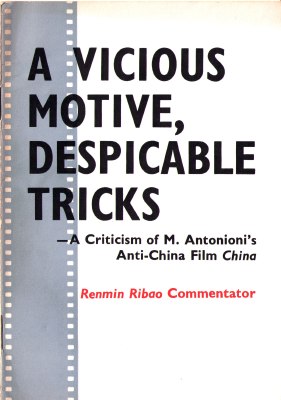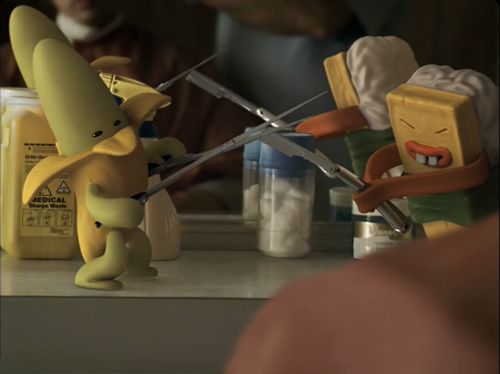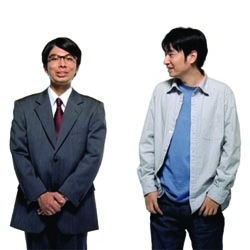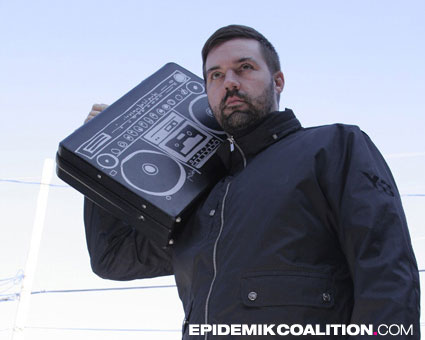
I only discovered the Chinese government’s published evisceration of Michelangelo Antonioni’s 1972 documentary Chung Kuo – Cina after I thought I’d finished my Cabinet article on Scott Sforza. Jonathan wondered if Susan Sontag’s On Photography might have a relevant idea or two in it, so I broke out the old copy–and found Sontag’s discussion of Antonioni’s “extremely reactionary and despicable”…camera angles [!]. It made for a sweet, surprisingly symmetrical ending to the piece.
Intrigued, I searched around for the full text of the 1974 Renmin Ribao Commentator pamphlet she quoted from, but it wasn’t online. So I ended up buying a copy, and scanning it in. It’s a fascinating read, and it should have been online long ago.
While the North Korean government is known for bombastic turns of phrase, the Chinese under Madame Mao had a really rousing, articulate, no-holds-barred style of denouncing its enemies and whipping up its populace. Not that the internal political motives of the pamphlet are at all unclear; but it’s entertaining. Antonioni’s criminal techniques weren’t limited to camera placement; his cinematography, use of color and light, editing, and sound editing were all reactionary imperalist tools as well. I don’t know if this is where the Dogme folks got it, but the Gang of Four’s condemnation of non-diagetic sound is easily as vicious as anything Lars von Trier could come up with, and twice as funny.
Anyway, the entire text is after the jump. The numbers in brackets are the page number/page breaks. If there are any typos or formatting errors, please let me know. Enjoy, comrades!





